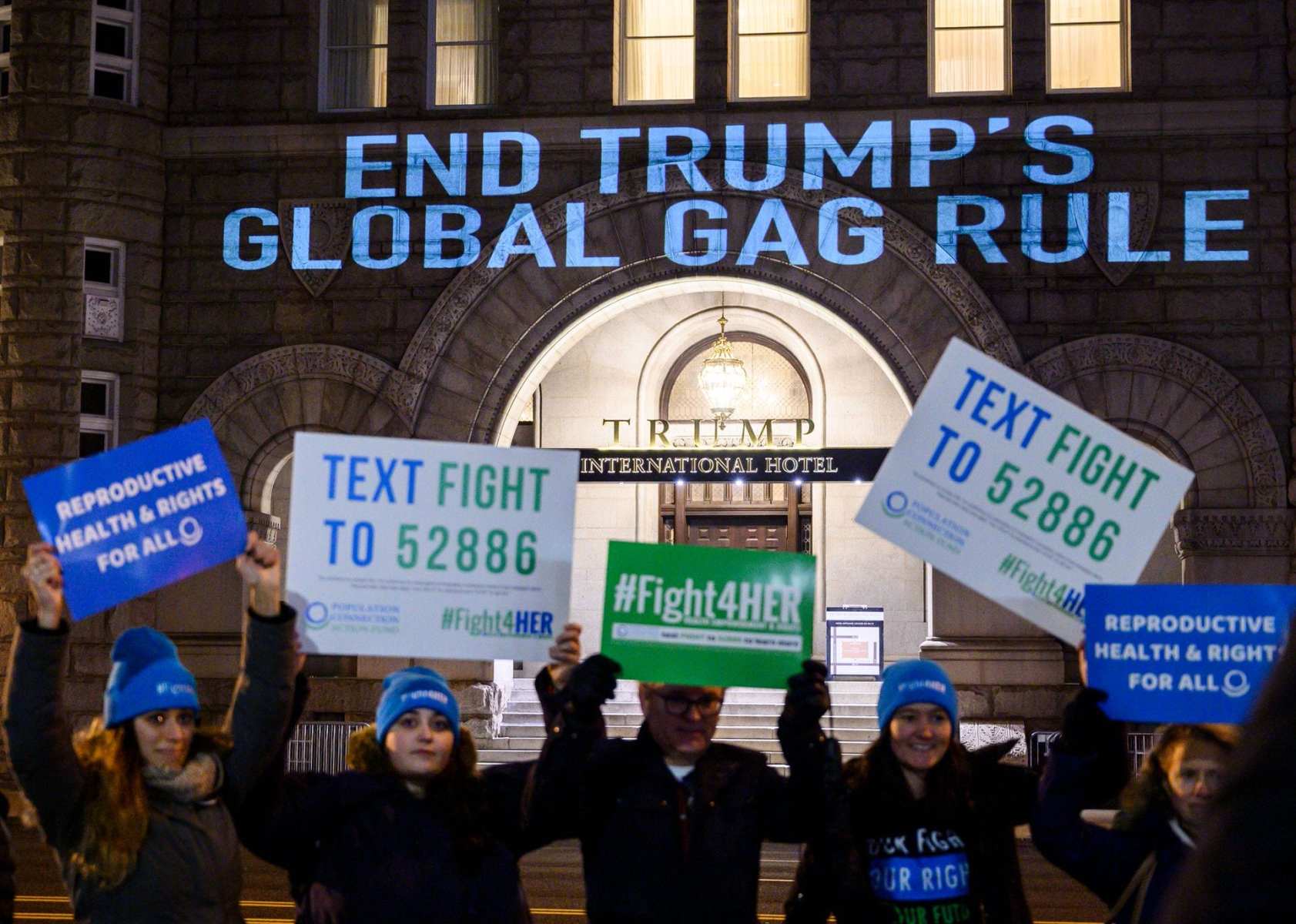For the latest news on the historic presidential inauguration and impacts of the new administration, subscribe to The 19th’s daily newsletter.
President-elect Joe Biden, who campaigned on protecting abortion access, is expected to undo many of the abortion restrictions the Trump administration put in place over the past four years. And the change will likely have ramifications well beyond the United States’ borders.
Biden has indicated he will eliminate a restriction prohibiting foreign aid groups who get certain kinds of U.S. funding from “perform[ing] or actively promot[ing] abortion as a method of family planning.” Biden is expected to undo that restriction, known as the Mexico City policy, within his first week in office.
Reversing the policy will have vast implications for women and LGBTQ+ people around the world, especially those who live in countries where American aid funding plays a critical role in access to health care services.
But the impact will take time to emerge, and advocates worry it won’t be enough. Since the 1980s, each Democratic administration has undone the restriction, only for it to be reinstated by every Republican president. Advocates are pushing for Biden — who will govern with Democratic majorities in both chambers of Congress — to pass legislation that would completely eliminate the possibility of the president restricting U.S. aid recipients from referring for abortion, and making this the last such inauguration where the policy switch takes place.
“We’re playing with the lives of women all around the world with this. We instate it, we take it back again. Many of these health systems are extremely fragile, and we know that women bear the brunt of failures in health care systems,” said Terry McGovern, a population and family health professor at Columbia University who has studied the policy’s impact. “For us to be every few years kind of changing how people can use the money — it’s extremely disruptive. It’s totally inappropriate.”
The implications of the policy, which reproductive health advocates have also termed the “global gag rule,” are now much further reaching than they were when it was introduced in 1984. Traditionally, the Mexico City policy, which applies to non-U.S. non-governmental organizations, only affected those who received U.S. money specifically allocated for promoting family planning — about $600 million of the foreign aid budget.
But the restriction has ballooned in the past four years. In 2017, the Trump administration expanded the restriction to apply to virtually all global health funding — about $12 billion dollars, per the Guttmacher Institute, including money that addressed HIV, pregnancy-related health, malaria, tuberculosis, water and sanitation, and child nutrition.
In 2019, the State Department put out new guidance that organizations who contracted with those aid recipients were also subject to the Mexico City policy, even if they hadn’t directly applied for any American funding themselves. Last fall, the administration proposed a new rule that would further expand what kinds of aid programs are subject to the restriction.
Advocates hope that those expansions would give new impetus for Congress to pass legislation blocking the government from withholding funding based on a particular medical service provided, so long as the service is legal in both the U.S. and the country the organization is working in.
“The numerous times that it has been made more difficult to operate has made clear to a lot of legislators this can’t be left up to executive fiat and allowed to bounce back and forth,” said Ben Weingrod, who heads government relations for CARE USA, the domestic branch of international humanitarian group CARE International. “I can think of few more blatantly colonial aspects of aid than something that says what you can and cannot do with your own money when it comes to health,” he added.
The policy’s impact on health care access abroad in the past few years has been tremendous, research suggests.
“All research points to harm. It’s not like we find some good things and some bad things. It’s all harm,” said Zara Ahmed, a foreign policy expert at Guttmacher who previously worked at the federal Centers for Disease Control and Prevention.
When the restriction is in place, experts said, organizations that lose funding as a result have ended up cutting staff and medical services — including, but not limited to, abortion referral.
“We’re talking about places that are not really dense networks of providers. You have one standalone clinic, or one organization who’s serving an entire district or city,” said Jennifer Sherwood, the public policy manager at the Foundation for AIDS Research, also known as amfAR. “If they are reduced, you could have huge impacts, which not only affect reproductive health and contraception, but can extend to vaccine delivery and maternal and child health services.”
Per a 2019 survey from amfAR, a third of organizations getting U.S. AIDS relief funding changed their services in response to the policy — mainly cutting back what kinds of sexual and reproductive health services they provided.
Those that do comply with the policy have to devote time and resources away from actual global health work to adapt to the change — for instance, rewriting literature, changing employee training and protocols, and consulting with lawyers to make sure they aren’t violating the policy.
“Anything that involves the word ‘women,’ you began to see concern and trepidation from groups about what they could or could not do,” Weingrod said. “There was a chilling effect going on — organizations were having to do a lot more fine-tooth combing of their programming.”
In Madagascar, where American health dollars play an outsized role in helping people access birth control, and where a third of adolescent women become pregnant, the impact is clear. At least one major organization that lost U.S. funding had to reduce support for local health care providers and cut back its contraceptive aid programs, eliminating many local sources of birth control, according to a 2019 study.
Many women interviewed in the study said that because they could no longer access affordable birth control, they became pregnant without intending to and got an abortion as a result. Because abortion is illegal in Madagascar, seeking out the procedure brings extra risks.
“Our results clearly demonstrate substantial impact on contraceptive service delivery, and ultimately on women and girls, in Madagascar,” the researchers wrote.
Nepal, by contrast, legalized abortion in 2002 — in response, McGovern said, to the high rate of pregnancy-related deaths. Research suggests that the Trump restrictions meant dramatically scaled back access to contraception in Nepal, and possibly higher rates of unintended pregnancy.
“We saw devastating effects across the board,” said McGovern, who was a co-author on the Nepal paper.
Health organizations are anticipating some of that being reversed under the new administration. But on day one, they said, they see little changing — U.S. funding agreements aren’t “a light switch that can go on and off,” Sherwood said.
It will take months, even after Biden announces a policy change, for the government to go back and revisit all the funding agreements that contain abortion referral restrictions. And it will take even more time after for the organizations receiving U.S. aid to adapt their own work to reflect those changes — changes that may, after all, be undone again in the next transition of power.
“We’re basically telling countries how to run their health care systems,” McGovern said. “This is a political football that tears countries apart.”






